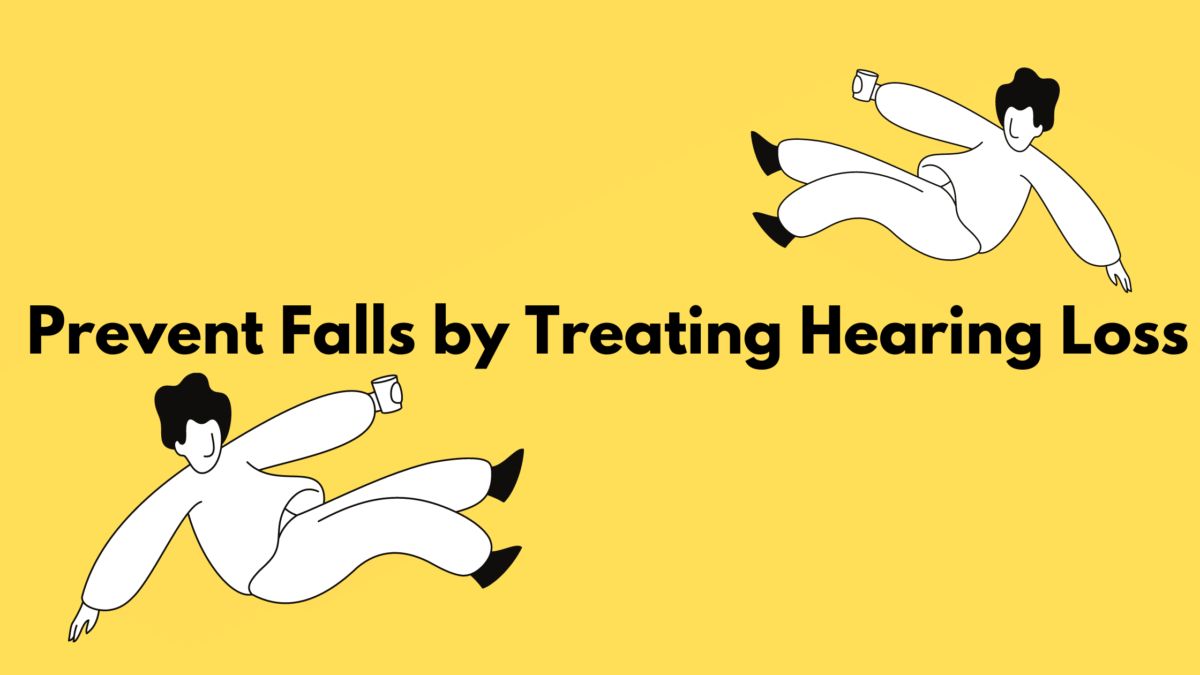
Prevent Falls by Treating Hearing Loss
Many of us understand the complications of hearing loss as a communication issue. It is true that untreated hearing loss can create strain on relationships, decrease your earnings at work, cause chronic depression and social isolation as well as increase the likeliness of cognitive decline. However, there are physical risks to hearing loss as well that many don’t suspect. For instance, your inner ear is not only responsible for sending audio information to your brain but also reports information pertaining to your balance. This, and less awareness around spatial relationships can increase the likeliness of falls significantly for those with untreated hearing loss. The good news is that treating your hearing loss can protect you from the risk of unexpectedly falling, an occurrence which can cause significant impacts to your health as you age.
An Increased Risk
The National Council on Aging reports “ one in four adults over the age of 65 falls every year. Every 11 seconds an older American will visit an emergency room seeking treatment after a fall.” When we are young many of us are able to bounce back from a fall with minor bruises, however as we age a fall can be much more serious. Falls are among the leading causes of injury in older adults, which often lead to hospitalization and in sometimes death. Recent finding reveals that even a mild degree of hearing loss triples the risk of an accidental fall. This risk increases by 140 percent for every additional 10 decibels of hearing loss.
How Hearing Loss Affects Balance
There are many ways in which hearing loss impacts a person’s ability to stay upright. One of the biggest risks comes from people’s inability to be as alert in their environment when dealing with undiagnosed hearing loss. Clear and healthy hearing not only allows you to hear the people around you but also the location, proximity and speed of sounds approaching. When people’s hearing is compromised their reaction time is shortened, causing a higher likeliness of an accident. They may also misjudge activities around them, causing a dangerous fall. This can affect spatial awareness as well as the brains’ actual ability to focus on balance and gait. As hearing loss becomes more and more severe, the brain receives less audio information forcing the entire brain to work harder just to interpret conversation. This not only causes listening fatigue but detracts from other factors in a space. This can make people with hearing loss much less alert and ultimately more subject to injuries caused by falls and other accidents.
Hearing Aids Improve Balance
While hearing loss is most often irreversible it has been found to be effectively treated by the use of hearing aids. These high-tech devices amplify the sounds around you in which you struggle and send them directly to the inner ear, so your brain won’t have to work overtime to interpret sound. Not only do hearing the people around you clearer but you can put more effort towards focusing on the space around you when you have hearing aids. This can help to prevent cognitive overload which causes all too many accidents and falls for an age demographic which can’t risk an accident.
Studies on Improved Balance with Hearing Aids
A 2015 study from Washington University in St. Louis tested balancing abilities in 14 hearing aid users over the age of 65 while standing on a thick foam pad and standing on hard floor. These tests were performed with and then without wearing their hearing aids. The test found that when wearing hearing aids patients were able to balance a few seconds longer and maintained a more reliable balance. While the study participants were not aware of the increased balance the proof was in the increased ability to stay balanced for longer.
Find the Right Hearing Aids for You
Everyone’s hearing loss is a little different, which is why it is important to have your hearing tested annually. If you suspect that you have a hearing loss, the soon you deal with it the more of a chance you have of avoiding many of the dangerous emotional and physical risks of ignoring hearing loss. Make an appointment today to find the perfect hearing aids to help you hear clearly and stay balanced.
